Career Opportunities 1991
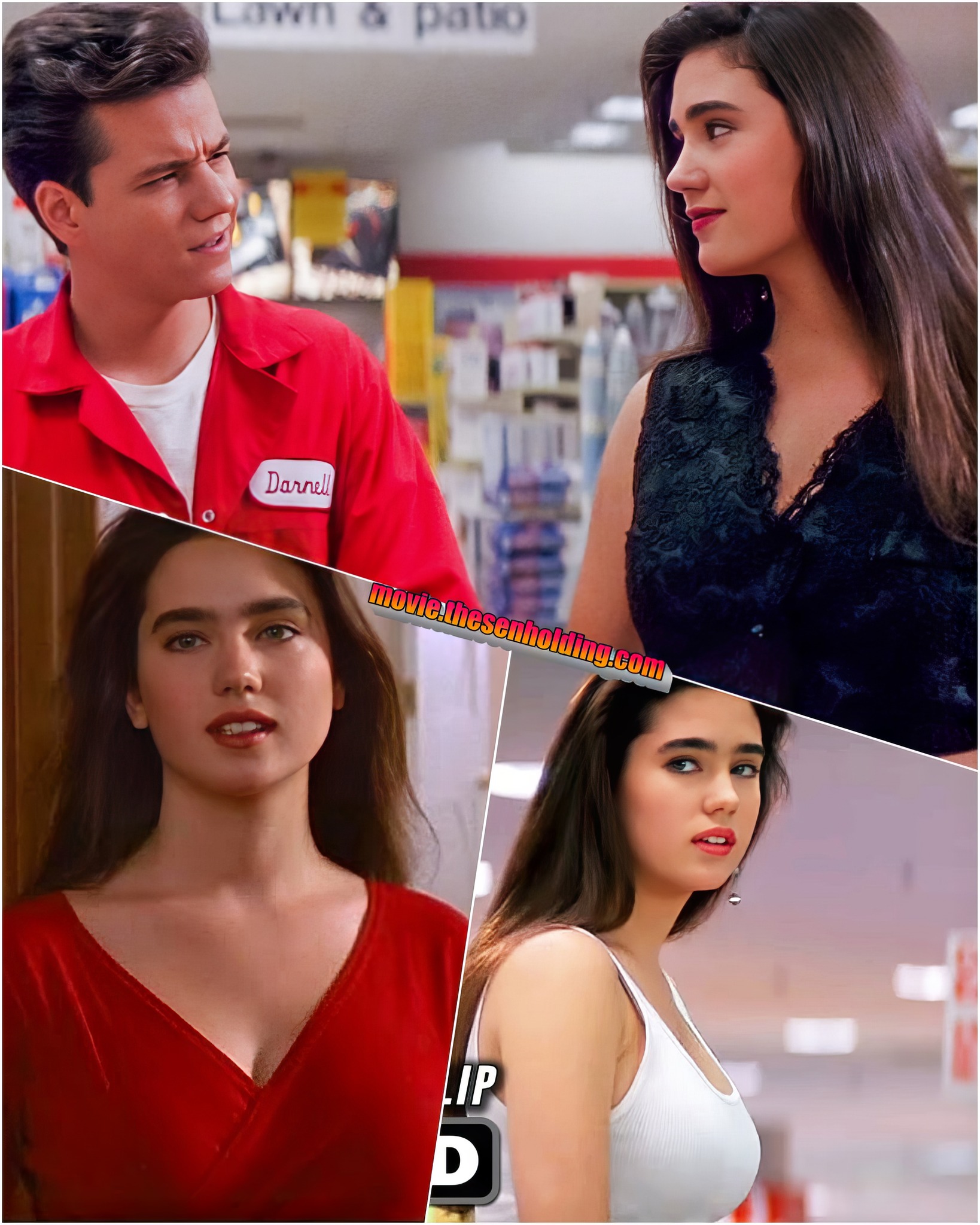
A Comprehensive Review of Career Opportunities (1991): A Cult Classic’s Charm and Flaws
Career Opportunities (1991), directed by Bryan Gordon and written by John Hughes, is a quirky, often overlooked entry in the vast catalog of teen comedies from the late 1980s and early 1990s. Starring Frank Whaley and Jennifer Connelly, the film blends elements of romantic comedy, coming-of-age drama, and slapstick heist caper, set against the backdrop of a Target store overnight. While it failed to achieve the commercial or critical success of Hughes’ more iconic works like The Breakfast Club or Ferris Bueller’s Day Off, Career Opportunities has cultivated a dedicated cult following over the years, thanks to its nostalgic charm, memorable performances, and an unabashedly goofy premise. This 3,000-word review dives deep into the film’s narrative, characters, themes, production, cultural context, reception, and legacy, exploring what makes it a flawed yet endearing relic of its time.
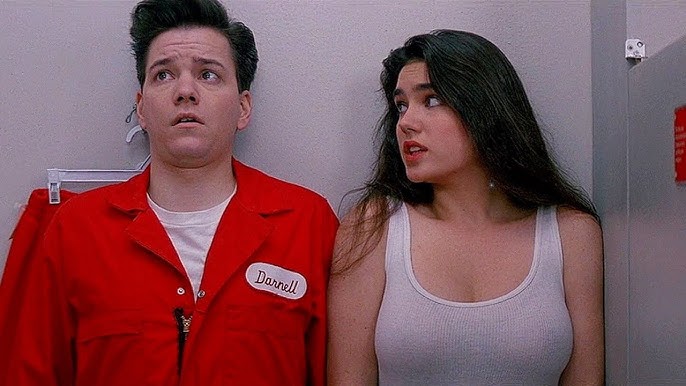
Plot Summary: A Night of Chaos and Connection
Career Opportunities centers on Jim Dodge (Frank Whaley), a 21-year-old slacker and compulsive liar who drifts through life in a small Illinois town. After being fired from yet another job, Jim’s father (John M. Jackson) pressures him to take a position as a night janitor at a local Target store, a job Jim considers beneath him. On his first night, Jim discovers he’s locked in the store with Josie McClellan (Jennifer Connelly), the beautiful and rebellious daughter of a wealthy businessman, who has snuck into the store to escape her troubled home life.
As the two navigate their unexpected confinement, they encounter a series of comedic and chaotic events, including run-ins with two bumbling thieves, Nestor Pyle (Dermot Mulroney) and Gil Kinney (Kieran Mulroney), who plan to rob the store. Over the course of the night, Jim and Josie bond over their shared feelings of aimlessness and disillusionment, confronting their fears and aspirations. The film unfolds as a mix of physical comedy, heartfelt conversations, and light romance, culminating in a slapstick showdown with the thieves and a hopeful, if slightly ambiguous, resolution for the protagonists.
The plot is quintessential John Hughes: a blend of teenage angst, quirky humor, and a touch of rebellion, all wrapped in a neatly contained setting. However, unlike Hughes’ more polished scripts, Career Opportunities feels episodic and uneven, with tonal shifts that sometimes undermine its narrative cohesion. Despite these flaws, the film’s premise—a night of misadventure in a consumerist playground—offers a unique backdrop for its character-driven story.
Characters and Performances: Whaley and Connelly Shine
The heart of Career Opportunities lies in its two leads, Jim and Josie, brought to life by Frank Whaley and Jennifer Connelly with a mix of vulnerability and charisma.
Jim Dodge (Frank Whaley)
Jim is a classic Hughes protagonist: a witty, underachieving dreamer who masks his insecurities with bravado. Whaley imbues Jim with a nervous energy and quick-witted charm, making him both relatable and slightly exasperating. His penchant for spinning tall tales—claiming to be a CIA agent or a rodeo clown—reveals a deeper desire to escape his mundane existence. Whaley’s performance is particularly effective in quieter moments, where Jim’s facade crumbles, exposing his fear of being stuck in a dead-end life. While some critics found Whaley’s manic energy grating, his commitment to the role anchors the film’s comedic and emotional beats.
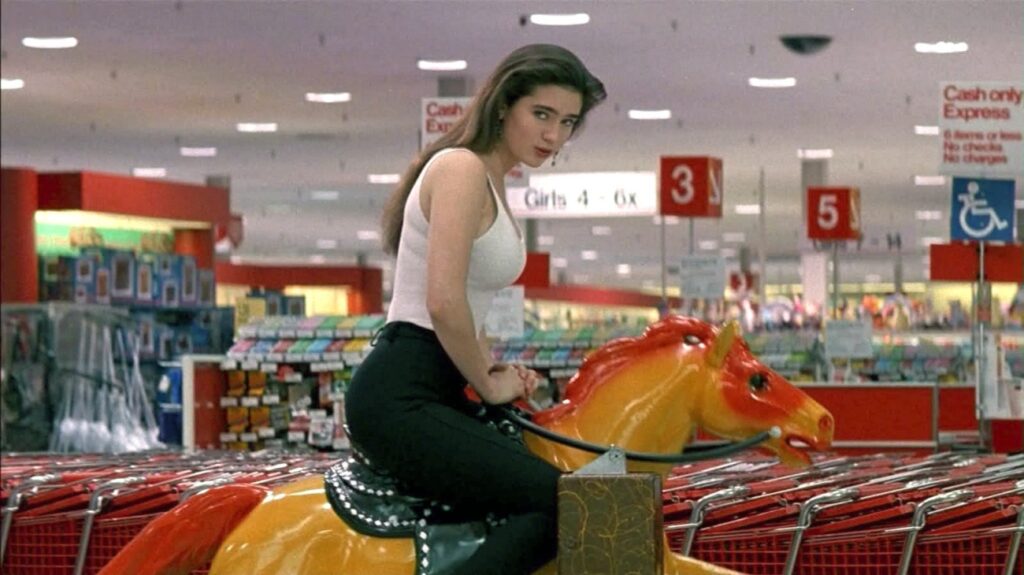
Josie McClellan (Jennifer Connelly)
Jennifer Connelly, only 20 at the time, delivers a standout performance as Josie, a character who could have easily been reduced to a stereotypical “dream girl.” Josie is complex: outwardly confident and privileged, but inwardly struggling with an abusive father and a sense of entrapment. Connelly’s natural charisma and expressive eyes convey Josie’s inner turmoil, making her more than just a romantic foil for Jim. Her chemistry with Whaley feels authentic, particularly in scenes where they share their vulnerabilities. However, the film’s marketing heavily emphasized Connelly’s physical beauty (notably a now-iconic scene of her riding a mechanical horse), which somewhat overshadowed her nuanced performance.
Supporting Cast
The supporting characters, while less developed, add color to the film. Dermot and Kieran Mulroney are delightfully over-the-top as the dimwitted thieves Nestor and Gil, providing much of the film’s slapstick humor. Their exaggerated performances lean into cartoonish villainy, which fits the film’s playful tone but occasionally feels out of place in its more grounded moments. John M. Jackson as Jim’s stern father and Jenny O’Hara as Josie’s mother offer brief but effective glimpses into the protagonists’ strained family dynamics. Smaller roles, like William Forsythe as the store’s sleazy manager, add a touch of Hughes’ signature satire of authority figures.
Themes: Aimlessness, Consumerism, and Coming of Age
Career Opportunities explores several themes that resonate with Hughes’ oeuvre, though they are presented with less depth than in his more celebrated films.
Aimlessness and Identity
At its core, the film is a coming-of-age story about two young people grappling with their place in the world. Jim’s compulsive lying and Josie’s rebellion stem from a shared sense of aimlessness, a fear that their lives are already mapped out in ways they don’t want. Their night in the Target store becomes a metaphorical crossroads, forcing them to confront their insecurities and consider what they truly want. While the film doesn’t delve as deeply into these themes as, say, The Breakfast Club, it captures the universal anxiety of young adulthood with sincerity.
Consumerism and the American Dream
The Target store setting is more than a quirky backdrop; it’s a commentary on consumerism and the hollow promises of the American Dream. The store, filled with shiny products and endless possibilities, contrasts with Jim and Josie’s feelings of emptiness. Scenes of them skating through aisles or playing with toys highlight the fleeting joy of material excess, while their conversations reveal a longing for something more meaningful. Hughes, known for his critiques of suburban life, uses the store as a microcosm of a society obsessed with consumption but devoid of deeper purpose.
Romance and Connection
The budding romance between Jim and Josie is understated but effective, rooted in their shared vulnerabilities rather than grand gestures. Their relationship avoids the cliched “opposites attract” trope, instead focusing on their mutual desire for freedom and authenticity. However, the film’s rushed pacing and uneven tone prevent their romance from reaching the emotional heights of Hughes’ other love stories, like Sixteen Candles.
Production: Hughes’ Influence and Gordon’s Direction
Career Opportunities bears the unmistakable stamp of John Hughes, who wrote and produced the film through his Hughes Entertainment banner. However, with Bryan Gordon—a television director making his feature debut—at the helm, the film lacks the polish of Hughes’ directorial efforts.
John Hughes’ Signature Style
Hughes’ script is filled with his trademarks: sharp dialogue, relatable teenage protagonists, and a nostalgic portrayal of suburban life. The film’s setting, a sprawling Target store, reflects Hughes’ knack for turning mundane environments into playgrounds for adventure (think the school in The Breakfast Club or the house in Home Alone). However, the script feels less refined than his earlier work, with pacing issues and a reliance on broad comedy that sometimes undercuts its emotional core. Some speculate that Hughes, juggling multiple projects in the early 1990s, didn’t give Career Opportunities his full attention.
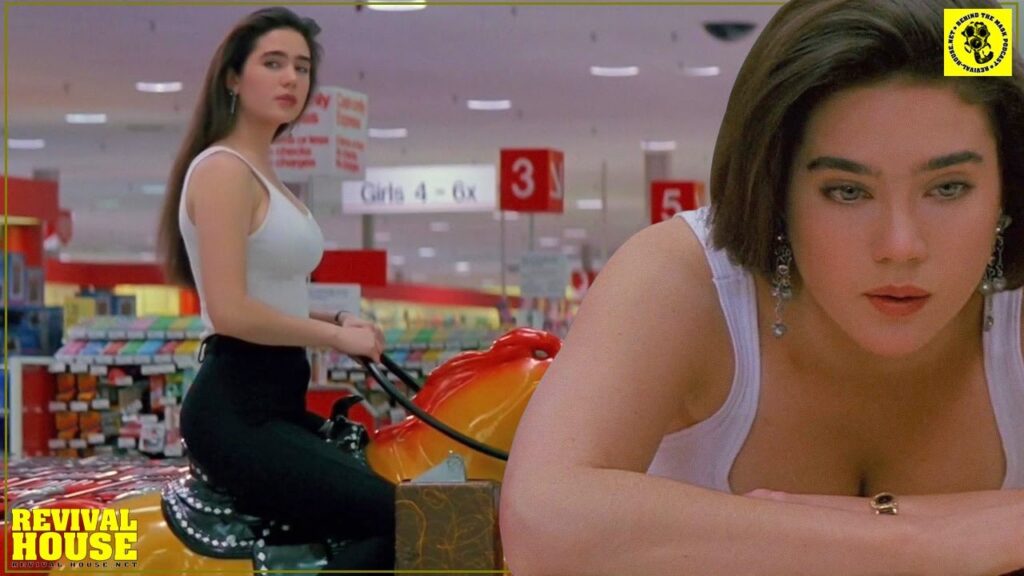
Bryan Gordon’s Direction
Gordon’s direction is competent but lacks the visual flair of Hughes or directors like John Landis, who elevated similar material. The film’s cinematography, by Don McAlpine, is functional, capturing the sterile brightness of the Target store but rarely using the space creatively. The editing, particularly during action sequences, feels choppy, and the film’s 83-minute runtime leaves some subplots underdeveloped. Gordon’s background in sitcoms is evident in the film’s episodic structure and reliance on physical comedy, which works in moments but can feel disjointed.
Music and Soundtrack
The soundtrack, featuring a mix of pop and rock tracks, is a highlight, embodying the early ’90s vibe. Songs like “Don’t Be Cruel” by Cheap Trick and “Go!” by Tones on Tail complement the film’s energetic tone. However, the score by Thomas Newman feels generic compared to the iconic soundtracks of other Hughes films, missing the emotional resonance of, say, Ferris Bueller’s use of The Beatles. The music, while enjoyable, doesn’t elevate the film as effectively as in Hughes’ bigger hits.
Cultural Context: The Early ’90s and Teen Cinema
Career Opportunities arrived at a transitional moment in teen cinema. The 1980s, dominated by Hughes’ Brat Pack films and raunchy comedies like Porky’s, gave way to a more diverse but less cohesive teen movie landscape in the early 1990s. Films like Clueless (1995) and Dazed and Confused (1993) were still on the horizon, leaving Career Opportunities in an awkward middle ground. It retained the earnestness and suburban focus of ’80s teen films but struggled to connect with audiences accustomed to flashier blockbusters or grittier dramas.
The film’s release in March 1991 was ill-timed, competing with heavyweights like Dances with Wolves and The Silence of the Lambs. Its modest $8.5 million budget yielded a disappointing $11.3 million at the box office, signaling a decline in Hughes’ commercial dominance. The early ’90s also saw shifting cultural attitudes, with grunge and alternative culture challenging the polished consumerism depicted in the film. Career Opportunities’s celebration of a Target store as a playground felt slightly out of step with the era’s growing cynicism.
Critical Reception: Mixed Reviews and Missteps
Upon release, Career Opportunities received lukewarm reviews, with critics praising its leads but criticizing its uneven tone and derivative plot. Roger Ebert gave the film two stars, calling it “a John Hughes movie that feels like it was made by someone who saw a John Hughes movie.” The New York Times’ Janet Maslin noted Connelly’s “magnetic” performance but found the film “slapdash and forgettable.” Many reviews highlighted the film’s failure to balance its comedic and dramatic elements, with the slapstick heist subplot often cited as a distraction from the central romance.
The film’s marketing also drew criticism. Universal Pictures’ posters and trailers heavily emphasized Connelly’s beauty, particularly the mechanical horse scene, which led to accusations of objectification. This focus alienated some audiences and overshadowed the film’s sweeter, character-driven moments. Over time, however, retrospective reviews have been kinder, with outlets like Den of Geek and Collider praising its nostalgic charm and chemistry between Whaley and Connelly.
Legacy: A Cult Classic’s Enduring Appeal
Despite its initial failure, Career Opportunities has found a second life as a cult classic, particularly among ’90s nostalgia enthusiasts. Its availability on home video, cable, and streaming platforms has introduced it to new generations, who appreciate its quirky premise and earnest heart. The film’s Target store setting, now a relic of pre-Amazon retail culture, adds to its nostalgic allure, evoking a simpler era of late-night adventures and suburban dreams.
Fan communities on platforms like Reddit and Letterboxd frequently cite the film’s charm, with many praising Whaley and Connelly’s performances and the film’s offbeat humor. The mechanical horse scene, while controversial, has become a pop culture touchstone, referenced in memes and retrospectives about ’90s cinema. For some, the film’s flaws—its uneven pacing, broad comedy, and rushed resolution—are part of its charm, lending it an unpolished authenticity.
The film also holds a unique place in John Hughes’ filmography as one of his last original scripts before he shifted to family comedies (Home Alone, Beethoven) and retired from Hollywood. For Hughes completists, Career Opportunities offers a glimpse into his recurring themes of youth, rebellion, and connection, even if it doesn’t reach the heights of his earlier work.
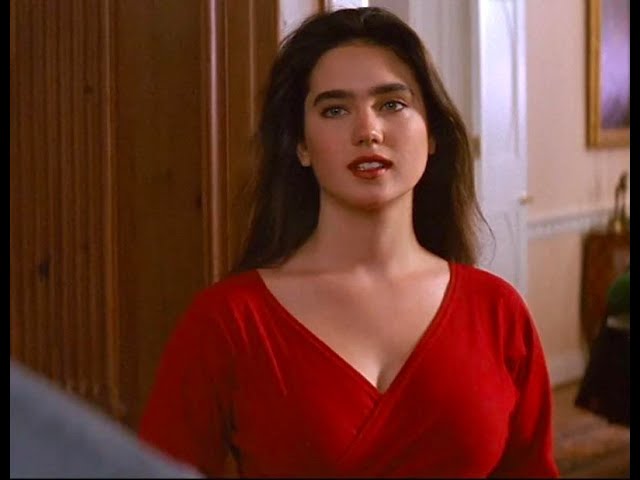
Strengths and Weaknesses: A Balanced Assessment
Strengths
- Lead Performances: Whaley and Connelly deliver engaging, heartfelt performances that elevate the material.
- Unique Setting: The Target store is a memorable and symbolically rich backdrop.
- Nostalgic Charm: The film captures the early ’90s with a sincerity that resonates with audiences today.
- Thematic Resonance: Its exploration of aimlessness and consumerism, while underdeveloped, adds depth.
Weaknesses
- Uneven Tone: The mix of slapstick, romance, and drama feels disjointed.
- Rushed Pacing: At 83 minutes, the film doesn’t fully develop its characters or subplots.
- Weak Marketing: The focus on Connelly’s appearance overshadowed the film’s substance.
- Derivative Plot: The heist and romance elements feel recycled from better Hughes films.
Conclusion: A Flawed but Lovable Time Capsule
Career Opportunities is not John Hughes’ finest hour, nor is it a forgotten masterpiece. It’s a flawed, endearing film that captures the awkward transition between the ’80s teen movie boom and the more cynical ’90s. Frank Whaley and Jennifer Connelly shine as two lost souls finding connection in a consumerist wasteland, and the Target store setting remains a delightful playground for their misadventures. While its uneven tone and rushed pacing hold it back, the film’s heart and humor make it a worthy watch for fans of Hughes, ’90s nostalgia, or quirky romances.
For those willing to embrace its quirks, Career Opportunities offers a nostalgic escape—a reminder of a time when a night locked in a department store could feel like the start of something new. Whether you’re revisiting it for Connelly’s star-making turn, Whaley’s manic charm, or the sheer absurdity of roller-skating through Target, the film remains a lovable, if imperfect, cult classic.